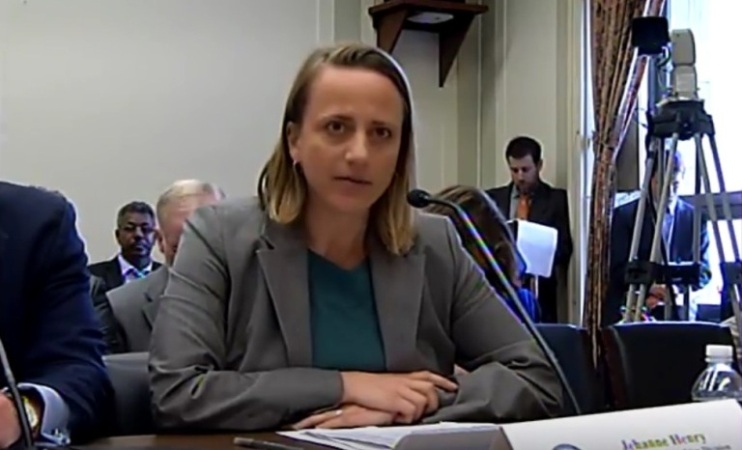Rights experts call for delaying permanent lift of US sanctions on Sudan

April 4, 2017 (WASHINGTON) – Human rights and advocacy experts Tuesday have called for delaying the permanent lift of economic sanctions on Sudan, saying there is a need for more time to assess tangible progress on Sudan human rights record.
The Tom Lantos Human Rights Commission of the U.S. Congress organised a hearing Tuesday on human rights and sanctions in Sudan where four prominent experts on Sudan gave their points of view on the lift of sanctions and ways to improve human rights and humanitarian situation.
Spoke at this hearing Omer Ismail, a Senior Advisor at the Enough Project, Ken Isaacs, Vice President of Programs and Government Relations, Samaritan’s Purse, Miles Windsor, Advocacy and Development Director, Middle East Concern and Jehanne Henry, Senior Researcher at Human Rights Watch.
The human rights issue was not part of the five-track engagement with Sudan which focused mainly on counterterrorism, the humanitarian situation in Darfur and the Two Areas and regional issues such the South Sudan peace process and LRA.
After hearing the presentation of the four experts, Jim McGovern, a senior House Democrat who is also a leading voice in Congress on human rights, asked the experts to give them their bests to influence Trump’s administration about the usefulness of sanctions, underscoring that human rights regretfully have lost its priority status in the discussions with the government officials.
“We have been exploring the idea of delaying the determination about permanent revocation, at least that allows for an additional period of time we can work with clearer criteria also to make very explicit what criteria,” said Jehanne Henry in reply to his request.
She further stressed that the delay of the permanent lift “can be one form of pressure” but conceded that individual targeted sanctions can be supported to force the Sudanese government to improve human rights in the country.
Mc Govern who has publically already expressed his opposition to the decision of Obama administration on Sudan sanctions said they cannot change the past but they want to focus on how to shape the future.
Different sources said the delay of lift has been already discussed with the White House by different groups and lawmakers opposed to the lifting of sanctions. But no decision has been yet taken.
Next July the U.S. President Donald Trump has to decide whether to approve the lifting of economic embargo decided by President Barak Obama last January or abrogate it at the end of the six-month trial period.
The delay for 25 weeks aimed to give Sudan more time to achieve political reforms and to ease freedoms as it is agreed in the national dialogue process but also improve humanitarian access to the needy in the conflict-affected areas in Darfur and the Two Areas.
Sudanese government also has asked the different Arab leaders who would meet President Trump to intervene in favour of their cause. Jordan’s King Abdullah who arrived on Tuesday is expected to raise the issue during his meeting with the American president.
Also, Sudanese officials including the Speaker of the parliament and the head of the National Intelligence and Security Services (NISS) were in Washington is a bid to gain the support of American officials for the lift of sanctions.
The two other experts backed the proposal, stressing that the six month period is not enough but the delay would give more time to study the improvement of humanitarian situation and human rights situation in Sudan and the full implementation of the agreed tracks.
However, Omer Ismail reiterated his support for the general sanctions claiming that Khartoum is hurting the Sudanese people, not the sanctions.
“75% of the government budget is direct to military and security which is doing nothing but hurting the Sudanese people. And only 5% only of this budget is allocated to education, healthcare and services combined,” he said.
He also expressed his support for the targeted sanctions saying it would help to target corrupt people and more people should be added to the list. he added that it would also help to fight the money laundering in Sudan.
In his written statement the Senior Advisor at Enough Projet called for “anti-money laundering measures and modernised sanctions” saying “it will bring new U.S. leverage with a regime that is not otherwise interested in ending the war, protecting human rights, and building an inclusive, representative government.”
He further called on the Congressmen to “push forward legislation that utilises the policy tools of financial leverage and more robust diplomatic engagement in support of peace, counter-terrorism, religious freedom, and anti-corruption objectives”.
“This legislation would include a modernised sanctions program that targets the assets of those in Sudan who are most responsible for atrocities, serious human rights violations, and grand corruption while minimising bank de-risking and other adverse impacts on others,” he said.
(ST)
